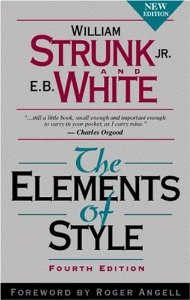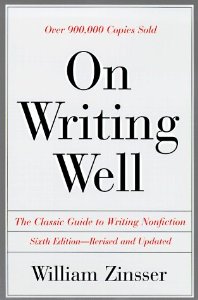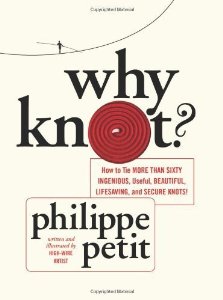 Sucky writing is easy. Anyone can do it. I was on a plane yesterday. The only reading material were trade magazines left by an insurance agent. I got a snootful of sucky writing.
Sucky writing is easy. Anyone can do it. I was on a plane yesterday. The only reading material were trade magazines left by an insurance agent. I got a snootful of sucky writing.
To be fair, the writers were salesmen (literally), not professional writers. And they tended to be long-winded.
The real culprits were the editors. Articles meandered pointlessly all over the page. Sentences were convoluted. The Chicago Manual of Style was nowhere to be found. Naughty, bad insurance editors! You need a spanking!
I don’t mean to rag on these people. God knows, they’re stuck with a boring subject. But I find other subjects more boring: knitting, fashion design, baseball, a serialized history of tea. But I have read exciting articles on all these subjects. They are written by hard-working writers, who wrote and rewrote, and obviously care about their craft.
It got me thinking about grant proposals. Grant writers are the luckiest people in the world. We have crazy exciting subjects. Yet most grant writing is dull and dreary. It’s stilted. Basic rules of grammar and punctuation run amok. And when grantors reads these messes, they can’t make sense of it, and your grant goes into the old circular file.
I think most grant writers (including myself) struggle to make our proposals sing — to express the organization, its mission, personality, and uniqueness. So here are some resources I use to help keep my writing from sucking (as badly as it could).
The Elements of Style by Strunk & White 
Strunk & White is my bible. I keep a copy next to my bed. It is heavily marked. The pages are yellow and stained with coffee and wine. It was originally written in 1918, and still gives great advice.
- Don’t use adverbs.
- Omit needless words.
- A participial phrase at the beginning of a sentence must refer to the grammatical subject.
It’s also a great example of how to make a boring subject very funny. It was edited by E.B. White, the great American humorist who wrote Charlotte’s Web, Stuart Little, and Is Sex Necessary?
Yes, some of the material is outdated. But who cares? A smart writer still pays attention to these two masters.
On Writing Well by William Zinsser 
Zinsser is my new discovery. Non-fiction writers must own this book. Zinsser helps journalists, cookbook writers, travel writers, sports writers, memoirists. And grant writers can find plenty of treasure.
- “Rewriting is the essence of writing well: it’s where the game is won or lost.”
- “Fighting clutter [in your writing] is like fighting weeds — the writer is always slightly behind.”
- “Beware of creeping nounism. This is an American disease that strings two or three nouns together when one noun — or better yet, one verb — will do.” Grant proposals are RIFE with this sin. I’m looking at you, “geographic information system.” I think you’re a map.
Why Knot? by Philippe Petit 
This is not a book about writing. It is a book about knots. Yawn…
But look at Petit’s writing. It’s astonishing. This guy is passionate about knots, of all things. Why? Because knots save lives every day. He writes about people who use knots, where they use them, and how they use them. And he writes about SPECIFIC people, in SPECIFIC places, who need SPECIFIC knots. You actually hear Petit speak, telling you how to tie these knots and when to use them. He even gives you a ROPE with the book, so you can start tying knots right away.
Why Knot? is the perfect grant package.
Now, we don’t write about knots. We write about compelling things — feeding the hungry, clothing the naked, healing the sick. We write about educating children in poor schools. We write about artists creating new plays, symphonies, dances, community events, and more. We write about projects that protect battered women, abused children, and homeless teens. So why is this book about knots more interesting than most of our proposals?
I’m not suggesting that you write like Petit. Grant proposals are business documents, after all. You must use the voice of your organization. But find Petit’s passion in your program. It is there, and it is your job to express it in writing.
Readability Tests
I’ve said it before and I’ll say it again — readability tests help you write better. They let you know how hard, or easy, it is to read your proposal. I sound like a broken record. If you want to know more about readability tests, go here.
Now get out there and excite some grantors!

The first two books have been on my shelf (and been used) for as long as I’ve written, so those were welcomed no-brainers to agree with. Because of that, and your well-written post, I am intrigued by the Petit choice, and will have to check it out. Thanks!
LikeLike
You won’t be sorry for it. I’ve had more fun with the knot book than I have had with any novel lately. And thanks for the compliment.
LikeLike
Fifth resource: don’t use the word “suck” in print and/or if your audience is old enough to remember the phrase(s) from which it derives. For more info, see: http://www.slate.com/articles/life/the_good_word/2006/08/suck_it_up.html
LikeLike
Haha! Touche!
LikeLike
Pingback: What is Black and White and Stands Firmly on Three Legs? | Preserve Your Memories and Save Your Self